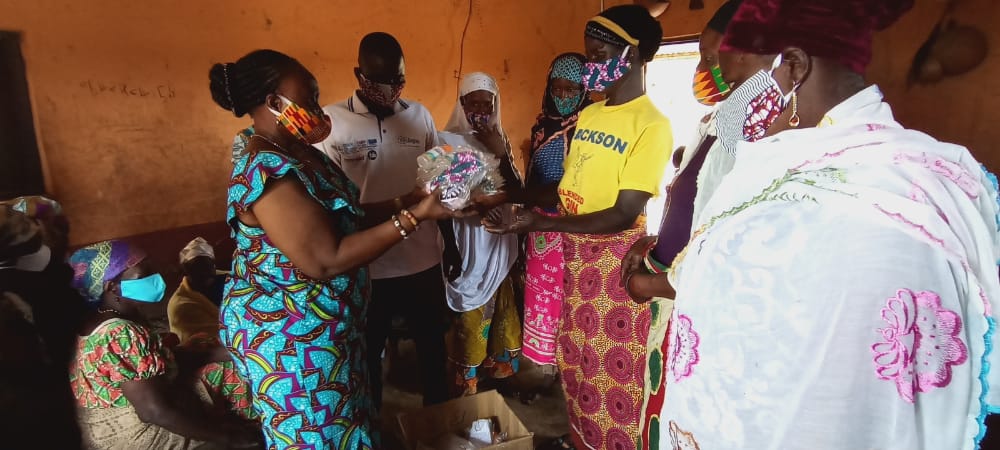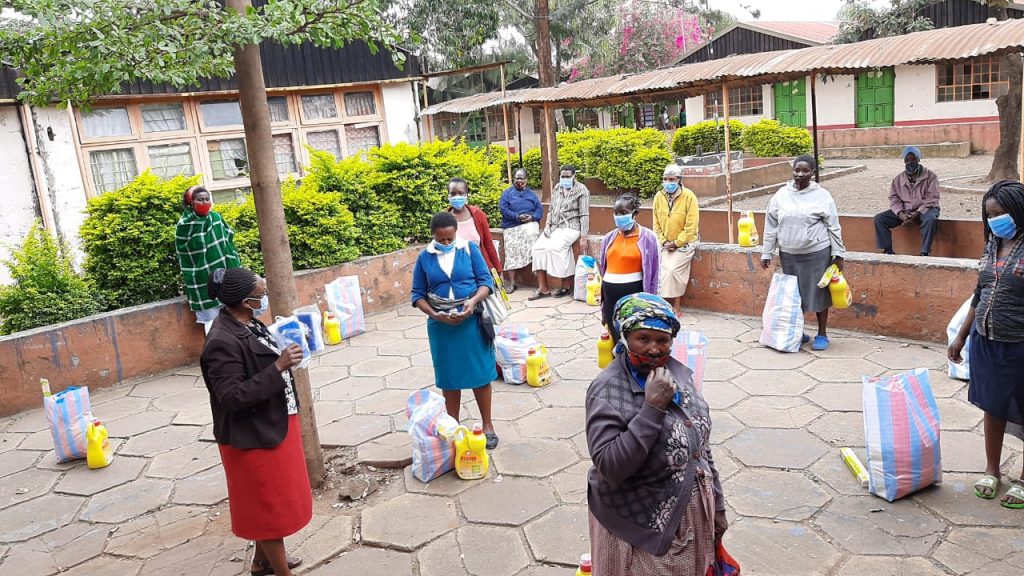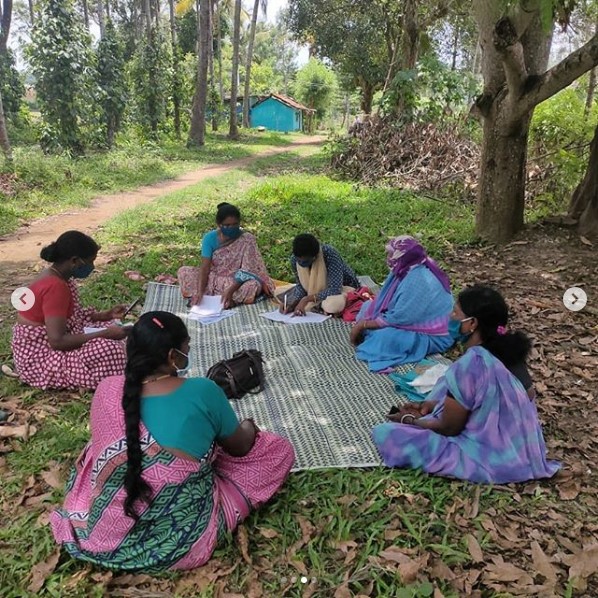Covid19 CRF: Grassroots women apply long-term community resilience building strategies

In April 2020, the Governing Council of Huairou Commission established a dedicated Community Resilience Fund (CRF) for Covd-19 response. After reviewing 50+ applications from member groups, the Governing Council has identified the first 20 groups to receive flexible financing via the CRF.
This article is part of a series of articles reflecting and communicating how organized groups of grassroots women leaders draw from their time tested risk-informed, and lived experiences, and use organized tools to effectively respond to the pandemic crisis and to build long-term community resilience. Drawing on their experience in disaster risk reduction and on their knowledge of specific community vulnerabilities and risks, grassroots women become frontline leaders and partner with local actors in an effort to reduce pandemic risks on the community members lives and livelihoods.
Organized groups of grassroots women leaders employ strategies that go above and beyond the ordinary response and relief approach among the NGOs working in disaster risk reduction and humanitarian relief. The women engage their knowledge of underlying community risks and mobilize collective resource and asset networks to create pandemic-responsive action plans that tie to longer-term strategies for building community resilience. They collectively assess the situation and its impacts in each community context, and adapt resilient livelihood and food secure practices / strategies that meet new aspirations, revive local economy, reduce health risks and build community capacities to cope with future pandemics.
For example, in Mathare informal settlement, in Nairobi, Kenya, where many households are single parent women led, a lot of women rely on income from domestic chores to support their livelihoods. As a consequence of the lockdown measures, these women could not continue working, jeopardizing their income. Utilizing the CRF Covid19 fund, the grassroots women led Mathare Legal Aid and Human Rights Advocacy (MLAHRA) organization has purchased detergent to produce hand-made soap to support community hygiene across the settlement while teaching 35 women new profitable skill of soap making. Looking ahead, MLAHRA plans to host training on sewing so women can produce facemasks, and on business management to strengthen their entrepreneurship skills.

In Ghana, Grassroots Sisterhood Foundation women leaders respond to income and subsistence loss in rural areas, where restricted market activity and mobility, compromised farmers ability to sell their goods and in turn purchase food and seeds for farming. In addition, many farmers used their seed reserves to feed their own families over extended quarantine periods, losing seeds for farming. To alleviate resulting food and financial insecurity, GSF is supporting 7 communities to take up collective farming activities to share food and sell surplus. GSF also established a revolving fund that enables women farmers to borrow money for seeds at an accessible interest rate, enabling continuation of their farming activities.
Across the ocean, in India, Best Practice Foundation initiated work with 35 grassroots women leaders in 5 communities to set up communal kitchens where the women would hand out roti (local snack) to the community members at risk of hunger, or sell them on sliding scale prices to others. This social business model responds to elevated food insecurity experienced by some community members due to pandemic measures while also generating income for the women leaders.

These actions taken by CRF Covid19 grantees, illustrate how grassroots women leaders use the funds to compliment their on-going effort to sustain community members’ livelihoods while striving to create economic empowerment opportunities for women to achieve long-term impact. The forthcoming articles in the Covid19 CRF series will continue to highlight different aspects of their unique and celebratory leadership, such as strategies to leave no one behind, partnerships, and others.
To support grassroots women’s effort, you can contribute to the Covid19 CRF: https://huairou.org/staging/donate/Or before that, you can also learn more: https://huairou.org/covid-19/
